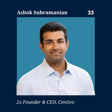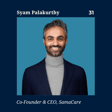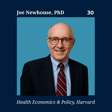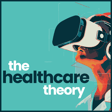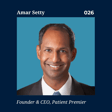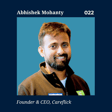Introduction and Theme of Episode
00:00:00
Speaker
Welcome to the Healthcare Theory Podcast. I'm your host, Nikhil Reddy, and every week we interview the entrepreneurs and thought leaders behind the future of healthcare care to see what's gone wrong with our system and how we can fix it.
Guest Introduction: Austin from Amenities Health
00:00:14
Speaker
Today we're speaking with Austin from Amenities Health. His platform is able to improve the patient-provider relationship by increasing patient loyalty and creating a seamlessly integrated portal and turnkey solution for providers.
00:00:27
Speaker
So thank you so much, Austin, for coming on today. Super excited to have you. Yeah, happy to be here. Excited to chat with you. Of course.
Austin's Background and Path to Healthcare
00:00:35
Speaker
And before we get into amenities, what you guys are doing today, can you kind of walk us through your background and and what brought you to healthcare? Super interested to hear that story.
00:00:43
Speaker
Sure. In some ways, i didn't really have much of a choice. i was the son of two physician parents and I'm South Asian. So I didn't stand a chance.
00:00:55
Speaker
yeah That had me on a trajectory to go to medical school, I think before I had fully thought it through. um That's not to say I didn't explore a bit. It's just, I think at the time in college, I was mostly interested in the world of pre-med and other things, but some of that might just been like who I'm around and again, influences.
00:01:14
Speaker
But the interesting thing was, so after I went to medical school, after I started medical school, had really taken a lot of opportunities to explore other things along the way. So I didn't major in any sort of ah science or engineering. i was a political science major.
00:01:30
Speaker
And that that theme kept coming back up for me. So I, ah in medical school, ah left for two years to do a joint degree in public policy.
Career Choices: Health Policy and McKinsey
00:01:38
Speaker
And I ended up obviously focusing in health care policy.
00:01:42
Speaker
But it was another angle at which like macro level economics and policy and politics really started to pique my interest in how those things played out. And then interestingly enough, because of that joint degree, I had a little bit of what you call the scenic route through through medical school in the sense that normally in medical school, you don't really have a summer vacation after the first year. But because I was doing a four and a half year degree at Duke and Harvard,
00:02:07
Speaker
I actually had two summers and a semester off. I spent the two summers in two very different places. So one was in the mayor's office as a health policy intern in Houston, Texas, where i'm from.
00:02:18
Speaker
And I spent all summer writing a paper about small group ah small group health insurance that I'm fairly certain no one's ever read nor anyone should ever read. It was generally useless, but that's what a policy intern does. They write kind of ideas about what you should do. And and maybe somebody reads it one day, maybe it' picked up by some politician, maybe not.
00:02:38
Speaker
um That was kind of a boring topic. So it wasn't really a chance of that. um But I learned some things, but I learned I definitely didn't want to be in that. Like that that level of government wasn't exciting to me. The next summer, i had the opportunity to be an intern for a McKinsey and Company.
00:02:54
Speaker
And McKinsey was a highly sought after internship. And I kind of learned how to to do that type of thing better enough. I wasn't successful my first time applying, but the second time I was.
00:03:04
Speaker
And um that was a whole different world. That was something that the day I hit the ground, I was so fascinated and excited by because um McKinsey reputation is pretty well known. But like day one, you're at the board meeting with the health system, not just the
Global Healthcare Insights and Entrepreneurial Shift
00:03:19
Speaker
health system CEO, but then the entire board.
00:03:21
Speaker
And you're helping that CEO decide which hospitals to buy or sell. And it was kind of this macro level um exposure that I was just like that. I'm i'm in love with this. Like I want to fix big kind of scale solutions. And so I made a very tough decision that my parents still don't quite understand today, which is to forego a clinical residency at the time and join McKinsey full time.
00:03:45
Speaker
And frankly, what I, in hindsight, think of as a residency in the health care administration of in America, especially on the of the health system side, which is where I spend all my time. So for those that aren't familiar, the world of health care for doctors and consulting is anywhere from the provider side, meaning large health care systems. Typically, you can't really work with individual docs or or small medical groups. You have to have some sort of macro level.
00:04:08
Speaker
a company or fortune something thousand. um Or you could do the payer side, which I had almost no interest ah in and continue to have almost no interest in today. Or you could do pharmaceuticals, medical device, biotech, et cetera, which again, those are things that I don't know why, I guess I, even though I, ah fancy myself kind of technical at the very beginning of my education, i find out very quickly that I'm not. I'm now married to an engineer and she cares a lot about the nerdy stuff that I could care less about.
00:04:39
Speaker
So um I had good math faculties, but I never really was attracted to that side. So I dove into provider, but again, macro level scale. And I spent four years at McKinsey doing a lot of work in health systems and large technical systems, also a little bit international. So I got a good perspective of what the US system looks like ah from afar, but then also what completely different systems in the Middle East and China.
00:05:03
Speaker
um And because I wasn't going to residency, actually, my last year, most people have to use their audition rotations to go go do a rotation wherever they're hoping to get a residency. I did mine in China with traditional Chinese and alternative medicine. i did an emergency medicine rotation in ah Turkey. And so that really gave me a lot of exposure to things that for me were a lot more interesting, which was just like, how does the the rest of the world work? And I was really optimizing around travel at that time.
00:05:29
Speaker
um And so, yeah, four years at McKinsey. And towards the end of it, especially, I kind of caught caught the entrepreneurial bug and ah left with a family friend to found my first company. And it was a complete utter shit show and a mess.
00:05:42
Speaker
I mean, i didn't know what I was doing. Having McKinsey skill set was really helpful in terms of a lot of tangible skills, but venture capital, investments, raising. And frankly, we ended up pivoting into fintech financial services. And a doctor in fintech was more of a conundrum I'd have to answer for it all the time instead of explain it. So it was it was kind of an interesting learning and I wouldn't do that again.
00:06:04
Speaker
um But it gave me a skill set that was really invaluable because I was a physician in the world of entrepreneurship. And i don't think I was good at fundraising at the time and other things.
00:06:15
Speaker
I dove into product and I love
Creation of Amenities Health and Patient Engagement
00:06:18
Speaker
product now. So I designed our product at that time. I design, mean, I'm i'm very hands on with all of our product and amenities. And that kind of combination skill set of clinical medicine and medical school, limited exposure, but enough to understand it, um kind of systems thinking. So public policy and McKinsey, especially the consulting toolkit.
00:06:40
Speaker
And then really product was just I didn't know at the time i was just kind of meandering through my career, but I didn't know that those things would be such a perfect confluence of helping help providers build a better experience.
00:06:51
Speaker
And that's what I stumbled into at then Baylor Scott and White Health. So I live in Dallas, Texas today, and Baylor Scott White Health is headquartered here. And that's what really brought me here. And my ah at the time in 2017, when I joined them, they were starting something new called the Digital Health Office.
00:07:08
Speaker
And innovation teams, digital teams, patient experience teams, these are all the rage these days, transformation teams. Every health system has a flavor and it might be a little bit more clinical, a little bit more technology.
00:07:18
Speaker
Ours was definitely called the digital team because it was more technology based. And thank God, because like changing the behavior patterns and transformation with doctors is generally useless. i There's almost no chance of it. You're going to hear that from me in my thesis for amenities here today.
00:07:32
Speaker
And so we focused on a bunch of different things, but the place where we excelled nationally and to this day, Baylor continues even without me is consumer digital experience. And because of it now, Baylor is the most profitable health system, one of the most profitable health systems in country. And that includes for profit health systems like Tenet, HCA and and others.
00:07:52
Speaker
And that's exceptional because most 37% health systems are in the red. They are losing money every year and have not yet still recovered from COVID. Bailish got in white for the first half of their fiscal year, which starts in the summer, reported $1 billion dollars profit, almost a $1 billion dollars profit and 11% margin. That is unheard of in nonprofit health care.
00:08:14
Speaker
And a lot of that is because of the investments and the technology that i I like to think that I helped start and built there at Baylor, Scott & White from 2017 to 21 when I left to launch amenities, which was my second startup now that I'm a CEO founder of.
00:08:27
Speaker
Yeah, and thank you so much for that background. I think that definitely really agree that technology is really able to improve margins, theyll deliver better care. But it's super interesting to see how your background really spans these different disciplines, almost to get different perspectives on policy and now consulting.
00:08:41
Speaker
And I know one thing I assert that you did really extensive research before starting amenities, something like 6,000 patient surveys, I think you you ended up doing. um Clearly, you kind of brought that consulting skill set, began to break down our problem really well.
00:08:53
Speaker
But what did you end up finding through that research? I know that you spoke on how really patients are super valuable. We're not recognizing how valuable they are, but through that research, that diligence that you did, what was your conclusion and what surprised you?
00:09:07
Speaker
Well, first of all, good for you. You did research and I didn't have to start with that story. So i appreciate you doing that background. It's always really helpful and that's why i was smiling. um Yeah, it's a fantastic question. So here's here's my first principles kind of thesis that led me to amenities and it is the culmination of viewpoints.
00:09:24
Speaker
from all of those different perspectives, but a lot of McKinsey, a lot of executive at Health Systems. And then let's talk about the surveys and what they told us, because i everything's colored by what you're looking for. And I was looking
Challenges in Healthcare Economics and Patient Loyalty
00:09:35
Speaker
for something. And let me describe that before I say what those 6,000 said.
00:09:39
Speaker
But there are fundamental things about the U.S. health care system that I think novices don't understand. And i would say, frankly, apologies. Let me shut that up. Somebody's trying to call me. All right.
00:09:52
Speaker
So the fundamental things, those first principles that people don't always understand is one, that patients are worth more in a lifetime value in this industry than any other industry I can think of other than like private yacht sales.
00:10:07
Speaker
I mean, think about what you will spend in some shape or form or will be spent on you by you, your employer, insurer, your government, whatever, right? Like social care, everything counts. I mean, Medicare, private insurance, what you pay in premiums, everything counts.
00:10:22
Speaker
you will probably spend anywhere from $500,000 to $1 million dollars by the time inflation is going up. That is the lifetime value of a patient in healthcare. care Now, nobody expects to capture all of that, but that's because we have crappy brands who will not earn your business.
00:10:36
Speaker
Amazon expects to capture a big chunk of that wallet share from you on everything you spend. And so that's the kind of weirdness about healthcare care is we have such low ambitions for patient loyalty.
00:10:46
Speaker
Because there everyone is, and this is an absurd way to think about it, so not recommending this, but like everyone's a walking bag of money bags to any individual patient per year for a large healthcare system is worth $10,000 to $15,000 on average.
00:11:01
Speaker
And what do we treat them like? We treat them like we're the frigging post office. like We're trying to piss them off. like We're trying to lose their business. like we're they're so lucky to be even they're They'd be lucky to spend eight months waiting for our appointment with the cardiologist. they'd be you know like We're doing them this amazing favor.
00:11:16
Speaker
That is insane. And everyone knows it. No one knows exactly what to do about it because there's so much capture and the way that this industry works that doesn't make any sense because of insurance, because of the special privilege of doctors in this society and all these other things. So I think those are things that kind of fundamentally said somebody has to disrupt that.
00:11:35
Speaker
Now, I think the second thing that people don't realize is large healthcare systems for all their flaws are like large grocery chains. That's where you're going to get, that's where most Americans are going to get their food is at Tom Thumb, at ah Safeway, at Kroger's, at whatever it is your local kind of regional one is.
00:11:52
Speaker
And most people are going to get their care at where you are, like at Harvard system or Boston university or Boston college or Tufts, right? Like the major healthcare systems. Yes. You might see independent doctors,
00:12:03
Speaker
You're not going most people are not going to a lot of independent hospitals unless they're very rural or spaced communities where they don't have those access. And so if that's the reality, you can try to do other things in terms of fixing this. But if you want a scalable solution, somebody has to get health systems off the bench and doing something better.
00:12:22
Speaker
And there's abundant financial incentive that they just don't understand or know about. and unfortunately that and Unfortunately, that's because a lot of health system executives didn't go through the training at McKinsey to say, hey, how do the hospital economics work?
00:12:35
Speaker
And the reality of hospital economics, the third thing that people don't recognize is surgeries and really six service lines make all the money. Everything else is a loss leader. So cardiovascular, orthopedics, oncology, which is really abundance of like 10, 15 different things, not just one thing.
00:12:52
Speaker
And then spine surgery, ah neonatology is only reason that anybody cares about women's health is because neonatology is the high profit margin service line. And so without those six, nothing gets paid for.
00:13:04
Speaker
And so then you you have everyone saying, well, why don't we invest in more primary care? Because it's not it's a loss leader for downstream referrals. And what's interesting is with the dynamics you mentioned regulatory at the beginning.
00:13:15
Speaker
With StarClaw, though, you're not allowed to actually make employee docs send you all your referrals, which is probably a good thing overall. But it has this weird thing that actually referrals go all over the place. And the only reason health systems, hospital systems expanded into purchasing medical groups was to hope to incentivize those with other means to say, hey, there's a closed system. We share the EMR.
00:13:36
Speaker
We can do better quality records, all these other things, because you can't pay for referrals, nor should you be able to. But those are all these dynamics that executives who are, again, 37% in the black or in the red don't even understand fundamentally once you get inside of these systems. And that's what's really challenging about this.
00:13:53
Speaker
They're trying to pull all these levers, not knowing what's going to fix their healthcare system. And the reality is, one, massive cost discipline is lacking in the entire industry. Everyone hires people and they don't want to fire anyone.
00:14:04
Speaker
every Even when we want to adopt technologies, we talk about how many people we can prevent from having to hire next, but nobody's firing anyone. And so all these systems have very bloated P&Ls with a lot of roles that they don't need.
00:14:17
Speaker
And then finally, there's no real investment in earning new patients through patient experience or access or convenience or any of these things. There's little things like you'll see a health system be like, oh, we're going to try retail clinics in a grocery store.
00:14:30
Speaker
And then in two years, they shut them all down because like they didn't make any money. They were never going to make money. Primary care offices don't make money, but they don't have the tolerance and the kind of long term vision to see those types of things through because they don't know what they're solving for.
00:14:43
Speaker
And so I think ultimately now let's talk about those 6,000 patient
Structural Changes for Cost Transparency in Healthcare
00:14:47
Speaker
surveys. So the other thing we shouldn't just assume is like, okay, we'll just open our doors and they'll come in and hurrah, we'll do better. Everybody wants to create more access. And because of a lot of entrenched things for decades now, there's not enough physician supply, right? I just don't see a world where MDs and DOs are delivering primary care in the future because there's just not enough of them. And we've done that deliberately, unfortunately, with the restrictions and medical school seats.
00:15:11
Speaker
And then, so then the question becomes, okay, well, how do you, ah what do patients want and what could we do that if it's not just doctors because everyone's fighting over doctors and scaling them? And so we did 6,000 patient surveys and we asked people, what do they where do they go today?
00:15:26
Speaker
Where do they think that they have brand loyalty? Where do they, what's what's missing? What's the worst part of healthcare for them? And what do they want that's better? And then most importantly, what are they willing to pay extra for? Because if we're just saying like, okay, we're going to dump money into making them better experience,
00:15:41
Speaker
I'd have to magically wave a wand and convince health systems to change all of that short-term thinking that I just said. And they I can't. um not that I'm not that persuasive. And neither is McKinsey. McKinsey constantly goes to these health systems and they pay millions of dollars for McKinsey engagements that tell them what to do, which is like, you got to invest in the consumer. You got to work on operational efficiency. You got let some people go because you have you're 20% overstaffed and revenue cycle.
00:16:04
Speaker
They don't listen to any of it. They're like, yeah that sounds terrible. And they put it on the shelf, even after they paid millions for it, right? They only listen the part they already wanted to do and check that box. This is a hand wavy estimate, but well over 50%. But I would guess somewhere from 60 to 80% of McKinsey engagements don't actually result in those in any of the recommendations, if not most of them being implemented. And that's because people don't have the will to actually do those because so those things are hard. That is changing culture. That is changing the technology stack. And people have a lot of vested interest in these things currently.
00:16:33
Speaker
So. So what do we do about it? Those patient surveys, what do those 6,000 say? They said a couple of things. One is everywhere that people say they are loyal, if you ask them where they're actually going, they're splitting all of their services.
00:16:46
Speaker
So patients, we have not found a health system that had more than 50% of patients who said they were loyal to that health system that actually get all their care there. most of them in every case, and sometimes 80% of the ones who say they're loyal to like Methodist health system here in Dallas have been everywhere else.
00:17:04
Speaker
And so what kind of loyalty is that? That's like saying, oh i love Kroger. Oh yeah, but I go to like Safeway all the time or I go to Whole Foods all the time. Then you're not loyal to And that's the that's what i think Health systems are so bad at measuring loyalty. There's no standard definition.
00:17:18
Speaker
If there was one, the closest thing would be this thing called in-network utilization, which means of all of the care that you get in a year, what percentage is that one single brand or health system? And amazing 40% this country. 30, 25 or less pretty typical.
00:17:30
Speaker
thirty twenty five or less is pretty typical And so that's how much capture opportunity there is if you could shift that volume. To give you a sense, by the way, if you shifted that volume, if you shifted 10% of that volume in the Dallas-Fort Worth area, that is worth $1 to $2 billion in new revenue.
00:17:49
Speaker
That's the economic value of doing this well and how much leakage is affecting all of these financials, P&Ls of health systems that are underwater. So ah the other things that we ask them is then great. What is awful in health care?
00:18:01
Speaker
Number one thing, obvious in hindsight, but it's nice to see it slapped in the face, is not access. Every health system in the country is like, oh, it's access. And then they do a dance because they can't hire enough doctors. And they're like, OK, well, we tried. We can't do
Improving Patient Experience and Access
00:18:14
Speaker
anything about it. Yeah. Number one problem is what Donald Trump just signed an executive order about. It is price transparency and the cost of health care.
00:18:22
Speaker
The cost of health care cannot go down until health systems realize they need to let go 20 percent of their workforce. That is not being productive and they didn't need a hire to begin with. That's not going to happen. And even if it did, they wouldn't pass that cost back on or they but wouldn't pass that savings on to them. Because as you all, everybody who experiences health care goes, there is no relationship between price and quality and the services you get in health care.
00:18:44
Speaker
And so even if they did do that, that's how they would reduce their cost to become profitable. But then they wouldn't give it back to patients because why would they? Why would anybody who's in that position? So the price though, you can do things about. So then when you ask them also, what's the number one things you want? They want tools like ah guaranteed self-pay pricing. They want tools like a no surprise bill and so and error protections.
00:19:07
Speaker
They want things like ah quantitative ah record or quantitative ratings of the best surgeons and hospitals in their area. And all of these things could be provided by health systems without having to pay for new doctors.
00:19:22
Speaker
But unfortunately, in the three years we've been at this, we haven't found a single health system who's interested in doing that. Because again, health systems don't think about things the way that Amazon does. Amazon wasn't like, you know, what would be amazing if we just built giant warehouses and guaranteed everybody two day shipping? That's what we want to do.
00:19:40
Speaker
It's like how we think the world should be. No, they said, what is the biggest pain point in e-commerce is waiting for something. That's how we compete with brick and mortar stores is to make sure that that pain goes away.
00:19:53
Speaker
And we don't want to have to figure out how to deliver things in two days across the country, a toothbrush, but we will because that's what patients, that's what customers want. And that's what will make us the most the largest company in the world.
00:20:04
Speaker
Health systems think the opposite. Like we're what we're doing works. We should keep doing it, even though, again, 37% them are in. the black And so that's the unfortunate short-term thinking. The number one thing i always tell every CEO I talk to is like, number one thing I would do if I was you is the No Surprises Act is already law.
00:20:19
Speaker
And every hospital in the country fought it. And instead, they should have embraced it and said, oh, my God, if I put this on the billboard, like we offer no surprise bill guarantee. That's the law. You would get 10% of the volume that would get up out of their hospital gowns and other hospitals and walk across the street right now.
00:20:34
Speaker
Because that's the biggest pain point. You're worried about being devastated financially by the health care system. But that's not the type of thinking that we see, unfortunately. So ah the last things that we also tested were, well, people want access and people do want a premium experience. And that's a lot of what we're doing. I wish we could be doing the financial services ones because I think those are scalable and frankly address the number one problem.
00:20:54
Speaker
But we'll start with access. So amenities health, our thesis coming out of those surveys and all that background that I just went on this giant tirade for you with is to say that Memberships are the way to demonstrate loyalty everywhere else, right? Amazon Prime, Netflix, every subscription you have, Apple One, Apple that you subscribe to for, ah i mean, Google One, Apple, whatever it's called for your ah your monthly plans.
00:21:21
Speaker
Those are all things that have kind of demonstrated. We didn't create that. The idea is that subscriptions are both good for companies because they show annual recurring and recurring revenue is kind of king these days.
Critique of Healthcare Models
00:21:31
Speaker
And then two, it's how then you can demonstrate you have a loyal customer if they're subscribing to you, if they're paying to be part of your customer network.
00:21:38
Speaker
And so premium memberships. Now the question is, what do they cost and what's in them? And that's where the surveys came in, where we've excuse me, design packages that will delight consumers at a premium price.
00:21:48
Speaker
And the last thing that we really kind of built this model off of was the idea of of One Medical. So One Medical is kind of ubiquitous in major markets in the country. But, and i I will write this up in an article soon, is what people don't realize is One Medical is really, i think, good for patients. I'm a patient of One Medical and I am thankful to have a very low cost service since Amazon has really subsidized it heavily now.
00:22:12
Speaker
Everyone's losing money though. Amazon lost a ton of money. Like they bought Amazon, one medical on average for $20 million dollars per clinic. There's no health system in the country that would pay more than $2 million dollars for a clinic like that. And they, so they paid 10 X cause they're Amazon. That's, they can do that.
00:22:28
Speaker
Yeah. The thing is, Help employers lose money on Amazon or sorry, on one medical because they subsidize it as a premium experience, but they're not reducing any health care costs because patients aren't using it the way they imagine.
00:22:39
Speaker
And then finally, what most people don't know is your local health system is actually there's just one sucker health system that's paying Amazon to come disrupt them in their market. And no health, no patients like you have one medical in your market in Boston.
00:22:54
Speaker
Any chance you know who's paying the bill, which health system is affiliated with one medical in your market? Not at all. If you survey 500 patients, two of them would be able to tell you. It's Mass General Brigham.
00:23:05
Speaker
And the reality is Mass General Brigham pays one medical $55 to $75 per member per month for every patient that goes through one medical's doors. And that is just the worst idea ever. And I know this because we signed that deal at Baylor Scott & White and it was insane. I was like, why are we paying One Medical to come enter our market
Strategy of Amenities Health and Implementation Success
00:23:22
Speaker
and to take brand loyalty from us when we don't when no one in Dallas knows One Medical before it got here, right?
00:23:29
Speaker
And that's just what Health System Zoo because they're they're terrified. Well, they have 8,000 PwC employees in Dallas. They're going to take them across the street to THR. And that's the kind of silliness of this whole thing.
00:23:41
Speaker
And so that's the the type of thing we wanted to change and innovate is one, would do virtual primary care. Two, we're white labeled. We are emphasizing the health system brand, which is the best thing they've built.
00:23:51
Speaker
The health system brand and the quality associated with it are the values. I look at health systems as basically holding companies. They are, you know, they have hospitals, they have medical groups, they have rehab facilities, they have pharmacies. None of these things are very interactive or connected, despite what they say, despite the medical record wish that it would be.
00:24:11
Speaker
But what they are is they're connected by the brand. You assume some level quality because those are all Mass General Brigham or they're all Harvard system or something. And so anytime they give them that brand, that's what they're really doing. And so we take that same approach and say, hey, they should be rewarded for their brand. So unlike One Medical, the third innovation is we share in revenues with the health system instead of charge them money to let us destroy their brand, which is One Medical basically does, or dilute their brand, not destroy.
00:24:37
Speaker
So that was a lot. i threw it out at you. Happy to dive in deeper. You tell me where you'd want to take this conversation. Of course, and I appreciate that background. I think it's like very interesting from the problem, of course. like Residency bottlenecks have really our system in a lot of strain in different areas in healthcare. care And then, of course, um cost anxiety is a huge issue that, for some reason, healthcare care providers aren't really that big on addressing and have not been addressing as much as they should have. so I love that you guys really took that inspiration from Amazon, Costco, and could bring that to healthcare. It seems super impactful, but can you kind of, as simply as possible, kind of walk us through like what is a digital front door and what role does, like, tangibly does amenities health kind of play in this relationship? Like, how are you guys in your platform being able to build that out through this like front door and um being able to like have like no surprise billing and everything like that? What's your position on this?
00:25:30
Speaker
So digital front door is a term that I am not a huge fan of just because it's been destroyed in this market. Not that it was anything wrong with it originally, but what it meant or how, one, there's no standard definition. every If you have a chatbot, they're like digital front door. If you had a website, digital front door. If you had a app, digital front door. So that that's why part of it, the problem was it was a Rorschach test.
00:25:51
Speaker
But I think the idea was that... I don't know, everybody has some stat where it's like 70% of healthcare searches start on Google, right? Something something like that. and just Google that quote and quote me on it. Pretend I said that thing, right?
00:26:04
Speaker
Well, so the idea was, are you found in this and can they get into your system this way? Whether that's a website, a text chat bot or app, it doesn't matter the format. So what we did at Baylor was so the the largest yeah EMR in the country is called Epic Systems and the largest patient portal that most people are familiar with that have engaged with the health care system. And maybe you or your viewers haven't that much. Hopefully young ah is my chart.
00:26:32
Speaker
So if you've heard of that, that is Epic. That is Epic's patient portal. It's a branded patient portal. And at Baylor, we said there no world where this is going to be sufficient for what we're trying to achieve in the digital front door space.
00:26:45
Speaker
And part of that was because, and this isn't just unique to Epic, this is every patient portal in the country, is they only ever thought the patient portal was going to be a known patient tool, meaning it's not an acquisition tool.
00:26:56
Speaker
And specifically, like Nikhil, if you are not a patient currently of Mass General Brigham, you cannot get into MyChart. So it's not a tool for you. It's a tool for current patients of that health system.
00:27:07
Speaker
That's the first problem. The second problem is if you ever looked at who designed these things, they were designed by programmers and maybe medical providers. And God help us all for both of those, because that's not who should be designing products these days.
00:27:19
Speaker
And it feels like it. And that's because they are meant to be largely transactional tools, meaning, hey, you have lab results. Let's get you those lab results. Hey, you have a message from provider. Let's get through those.
00:27:30
Speaker
But none of it feels good or easy or or kind of easy to use. And one thing for whatever reason was left out of most patient portals was how do i actually, again, because it's not designed for a patient that isn't already in the system. It was designed for a current patient.
00:27:43
Speaker
At best, they have appointment scheduling for a relationship that you already have with the current doctor. Most people have the ability to get an appointment with their own doctor because they're part of that panel. But a lot of people are out there being like, I'd like to find a doctor. I'd like to actually schedule my first appointment and they're left with basically nothing.
00:28:00
Speaker
And that's the problem. So a lot of these things are just massive gaps. For whatever reason, people were like, we'll make a chat bot that fixes that solution. I thought that was insane because that was like, how much, and this is just my personal usage. And again, I fancy myself a product person. Like how many chat bots do I like using?
00:28:16
Speaker
I only use them if I absolutely can't find a phone number or and they were horrible. Now, of course, they're way better. ChatGPT and all the kind of large language models are going to make them a lot more fluid and people like.
00:28:26
Speaker
But at the same time, back when these things have been started for 10 years and when I was rejecting buying them, I was like, I wouldn't want to use a chatbot. I'm assuming most patients wouldn't either. Let's just get them the information they want, which is what you can do at Yelp. When I look at a restaurant, when I'm looking for a restaurant, type in that type of food or just get a full list at Yelp.
00:28:44
Speaker
And then also, ah what is it sorted by? And they're sorted by what I care about most there, which is they're their average rating. Well, for doctors, it should be sorted by the earliest available appointment because it's the number one feature, back to those 6,000 patient surveys.
00:28:59
Speaker
that patients want. And unfortunately, when we started this, there wasn't a health system in the country that had their provider search sorted by next available. So we fixed that at Baylor. And there's not a single day that you can't go into Dallas, Fort Worth ah area, type in primary care and find 10 appointments available because we made that easy.
00:29:17
Speaker
Every other health system, most health systems still in the country don't have that capability. So it's these little types of things. So it's more about like the experiences. How do I get into the thing? How do i register for Epic? Because they won't let me.
00:29:28
Speaker
How do I find a doctor? Your provider search is a mess. A lot of health systems literally don't. They have a provider search that is only sorted by alphabetic A to Z and Z to A. And that's horrible because Dr. Ziad is getting screwed because he's just at the bottom of that list every time. There's there's health systems that have only A to Z. You can never reverse it even in terms of the sort order.
00:29:47
Speaker
And there's no preference in terms of ratings, cost, appointment times that you would think a modern experience would have. So those are a lot of the things that we fixed at Baylor. Those are a lot of the things we fixed at amenities.
00:29:58
Speaker
um And so that was our digital front door business. And we still have those capabilities. But again, we're trying to that was always meant to be at Baylor for me. The reason I left Baylor was we did all that stuff. It worked insanely well. When I left Baylor the last 18 months, and this was post-COVID where the world had turned digital and demanded it, we were light years ahead of every other health system.
00:30:18
Speaker
We did half a million net new users to Baylor Scott and White in 18 months through the digital channel. Everyone else in that country, that number was zero because again, their digital channel didn't accept the new users.
00:30:29
Speaker
So it was remarkably successful and it continues. That's what led to that kind of billion dollar margin that they have now. um But here's the thing. So now my my next question, and as I was exiting Baylor to launch amenities, I was like, great, we've acquired customers. I feel like we've solved that. We know what we're doing.
00:30:49
Speaker
How are we going to keep them back to this loyalty problem? They're all splitting it. We don't have a reason to be loyal. We've never given, like if they love Baylor for primary care. so So here's based on everything I've told you already, this will make sense now is if they love the primary care at Baylor and we've made it easy to find that PCP and they had an appointment tomorrow and they met that doctor, they fell in love with that doctor. They're going to stay with that doctor forever.
00:31:09
Speaker
Oh, but that doctor went to med school with an orthopedic surgeon who's at UT Southwestern. So they're going to send them over there to get their knee scoping done. What's the most profitable part of the business?
00:31:20
Speaker
Again, the surgeries, the procedures, et cetera. We have not given them any reason to stay in network other than please, it would be nice. We'll keep your medical records together and we'll not make you do a thousand different things and have a thousand different apps.
00:31:32
Speaker
Like the value proposition and this most health systems would say is because we're Baylor, because our brand, because we're Harvard, because we're, that's bullshit. that That day is gone. Every old brand, that's like saying because we're AT&T, they'll prefer our cell phones.
00:31:48
Speaker
I mean, like the day is gone and unfortunately the brand matters, but it doesn't matter to say, I'm going to give you my loyalty because of that. So those are the types of things where we said we need to solve loyalty. And that's why I left because at Baylor, it was just getting also really bureaucratic, really
Vision for Healthcare and Advice for Innovators
00:32:03
Speaker
stodgy. I'm, I'm,
00:32:05
Speaker
a small company guy. That's that's what I realized in my you you know career postgraduate school is I never thought about it until I launched this company. And I was like, man, ah just I just can't work in giant companies anymore because turning those ships, the bureaucracy, the politics, it's just challenging. That's everywhere. It's not unique to Baylor.
00:32:22
Speaker
So at small companies, I thought it would just be easier to do this type of thing. Now, ironically, we serve those big companies, and so I still have to have a foot in that world. But at the same time, it allows me to set the culture, it allows me to set the vision for what we're doing, allows me to select and hire the best people that I think are there for the job, whereas all of those things are much harder inside of large companies.
00:32:43
Speaker
Okay, that makes a lot of sense. And it's really interesting to hear how you guys are disrupting that. And it definitely makes sense to be willing to like, I think you can just have um higher potential to disrupt things in a smaller company. That's just definition of like the whole theory.
00:32:56
Speaker
um But i'm now i'm very curious. I know like, first of all, congrats on your Series A. $10 million raised is amazing. And it was led by Memorial Care. And I think that um That's going to provide like a lot of forward trajectory for your team. But how does being partnered with like a provider and like them leading this round um really impact you guys? And what's your kind of go forward trajectory on the business? What are you envisioning?
00:33:18
Speaker
We'd love to hear your thoughts on the future of amenities health. Yeah. So ah for folks that might not be aware, a lot of companies have created strategic funds. So, again, i don't think this is unique to health care. It's just what I'm familiar with. But large health care systems said, hey, venture capital or Silicon Valley is getting rich off of our backs because everybody wants to come serve health care. We should do some of this.
00:33:39
Speaker
Interestingly enough, we kind of fought that urge at Baylor just because we very much knew how hard of a skill set that was. And we had no experience in it. I would have been in charge with it of it, which would have been a nightmare because I don't know anything about venture capital at that point. Now I do some from being an entrepreneur.
00:33:53
Speaker
But um the a few health systems did that really well, and MemorialCare was definitely one of them. Brant Heise and Caleb Winder from MemorialCare had been doing it for years.
00:34:04
Speaker
I knew them because i unrelated, had leveraged and selected like four or five of their companies to work with at Baylor. So I kind of already had some pretty high regard for them because they – The companies that they selected to invest in were ones that I thought were the best in the class. So Twistle, Fine, and a couple of other ones independently before I even thought I was going to go back into the entrepreneurship world.
00:34:26
Speaker
And then we also ended up signing MemorialCare as a customer before ah taking the investment with them, which also just showed that we had pretty good alignment in how we saw the world and that vision. And so we've launched their mobile application. The MemorialCare application is is live in the App Store. You can go download it and see what that feels like versus traditional patient portals.
00:34:45
Speaker
And then we are hopefully on our way to launching memberships and thinking about that here soon with them. And it's been a great partnership. I think having health systems doubly bought in, not just as customers, but investors is a great opportunity. And we're always open.
00:34:58
Speaker
Even if we're not raising, we always tell we're not raising because we're in between rounds for something and we're trying to focus on growth and getting products out and other things. But when health systems are looking at being clients and they think that's a sweetener, we're more than open to it always.
00:35:11
Speaker
Of course. And I think that it's great that you're at this inflection point. And thank you so much for really walking us through, like, what are some core problems in how the health system and how your team's addressing it. This is a super helpful episode and really appreciate your background today. And thanks so much for coming on. and It was super exciting to have you. And um hopefully we all learned a lot.
00:35:29
Speaker
i I hope so. I appreciate you giving me some time to go in those tirades, but those are things that I think as you all think about your careers young in the in the world of ah venture and entrepreneurship, it's very important to take ah level of understanding of an industry one level deeper. Hopefully a lot of the insights I gave you Again, those are not obvious until I spent 10 years in the industry, but it's important to hone in on those. And i I think it's incredibly frustrating when people ignore those or just are oblivious to the real mechanics of how an industry works, because then they're like, I thought the world said primary care was a good thing. We want more of it.
00:36:03
Speaker
That's not how the unit economics work. And so people need to understand that level and whether that means joining a startup to go do that or joining some industry companies so you can gain those painful insights and really kind of see what doesn't work.
Podcast Closing and Additional Resources
00:36:15
Speaker
Before you jump out to either invest in or or start a company that does something different and better about it, it's really helpful to get grounded in the realities of an industry that aren't obvious to the outside world. Thanks for listening to The Healthcare Theory.
00:36:29
Speaker
Every Tuesday, expect a new episode on the platform of your choice. You can find us on Spotify, Apple Music, YouTube, any streaming platform you can imagine. We'll also be posting more short-form educational content on Instagram and TikTok. And if you really want to learn more about what's gone wrong with healthcare care and how you can help, check out our blog at thehealthcaretheory.org. Repeat, thehealthcaretheory.org. Again, i appreciate you tuning in and I hope to see you again soon.







